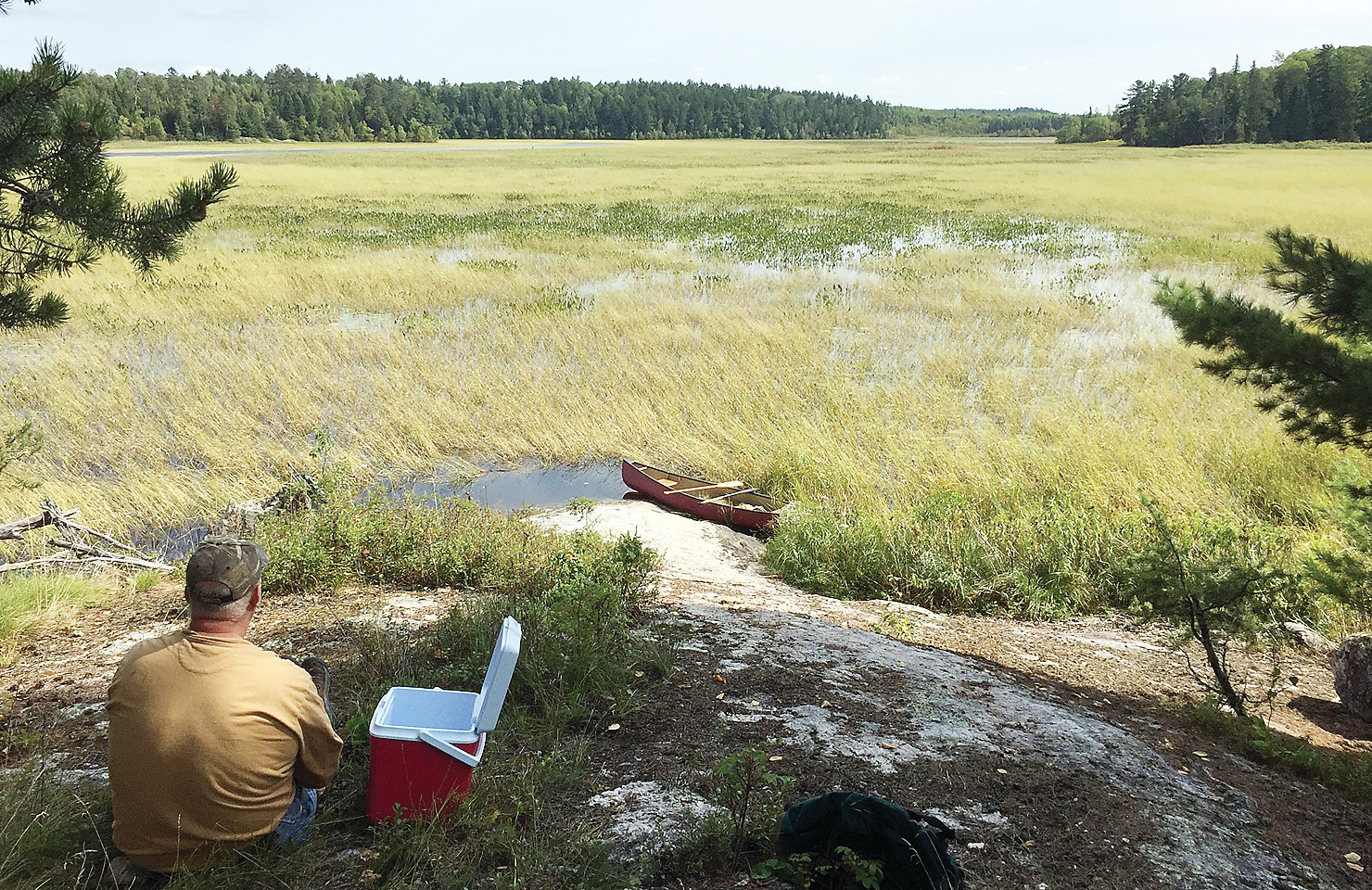Support the Timberjay by making a donation.
Thoughts on the perfect wild food
A day knocking rice is a day very well spent
Paddling or poling through a thick bed of wild rice, it’s easy to appreciate that native peoples have long viewed this remarkable natural grain as a gift from above.
For a hunting and gathering …
This item is available in full to subscribers.
Attention subscribers
To continue reading, you will need to either log in to your subscriber account, or purchase a new subscription.
If you are a current print subscriber, you can set up a free website account and connect your subscription to it by clicking here.
If you are a digital subscriber with an active, online-only subscription then you already have an account here. Just reset your password if you've not yet logged in to your account on this new site.
Otherwise, click here to view your options for subscribing.
Please log in to continue |
Thoughts on the perfect wild food
A day knocking rice is a day very well spent
Paddling or poling through a thick bed of wild rice, it’s easy to appreciate that native peoples have long viewed this remarkable natural grain as a gift from above.
For a hunting and gathering culture, wild rice was, and still is today, a nearly perfect food. It’s remarkably easy to gather and can be processed for long-term storage with low-tech methods. It’s not just tasty and versatile, it’s packed with calories and is high in protein, fiber, vitamins and trace minerals, like potassium and magnesium. And the lakes and rivers of northern and central Minnesota have traditionally produced more of this natural grain than anyplace else on Earth. One can surely understand why the Anishinabe and the Dakota fought battles over the control of this incredible resource.
Of course, wild rice isn’t just a resource for humans. You don’t need to spend much time knocking rice to recognize that a wild rice bed is a thriving ecosystem of its own.
A rice bed is like a living, breathing organism, literally writhing with life, with the rice kernel as the foundation. For first timers, the abundance of life in the rice bed can be a revelation, and a source of unease for the squeamish. In most years, the rice is crawling with rice worms, about an inch long at maturity. They feed on the kernels and can have an impact on your rice harvest when their infestations are particularly heavy. You can’t avoid them as you rice and your canoe is quickly filled with them. Soon they’re crawling up your pant legs, they’re in your hair, or crawling down your back. The bottom of the canoe is alive with thousands of them.
The worms are joined by many other insects and several species of spiders, the most abundant being the species commonly known as the rice spider. It doesn’t take long until the canoe is strung with fresh spider webs from inwale to thwart, from bow to stern.
And life attracts life. The abundance of worms and insects becomes a source of food for birds, like blackbirds or sora rails, a small wetland bird that I normally only see while working the rice. Earlier this month, I was ricing with my friend Jake up on the Vermilion River, near the Gold Mine Camp, and we must have kicked up a couple dozen soras while out there. They’re about the size of a quail, but with long toes, like most rails. They slowly pick their way through the rice stems, presumably feeding mostly on rice worms.
The rice also attracts many other species of waterfowl. It’s a resource for dabbling ducks, geese, and swans, all of which rely on the rice as a mainstay.
Even under the water, the dense stalks provide effective cover for young fish and other aquatic organisms. From an ecological perspective, wild rice is immensely important to the diversity and health of our region.
For many, of course, the harvest is important for other reasons as well. For natives, in particular, it’s about connection to cultural traditions that go back many generations and that have, over the years, become central to their very sense of identity.
The harvest may not engender such immediate cultural resonance for everyone, yet it still harkens back to an even more ancient thread of human existence, when we were all hunters and gatherers.
To go ricing is to live deliberately, as Thoreau once put it, fronting only the essential facts of life. It is to engage in only the essential act of living, an exercise in both work and joy, a combination far too rare in our modern world. In other words, it is most certainly a day very well spent.






